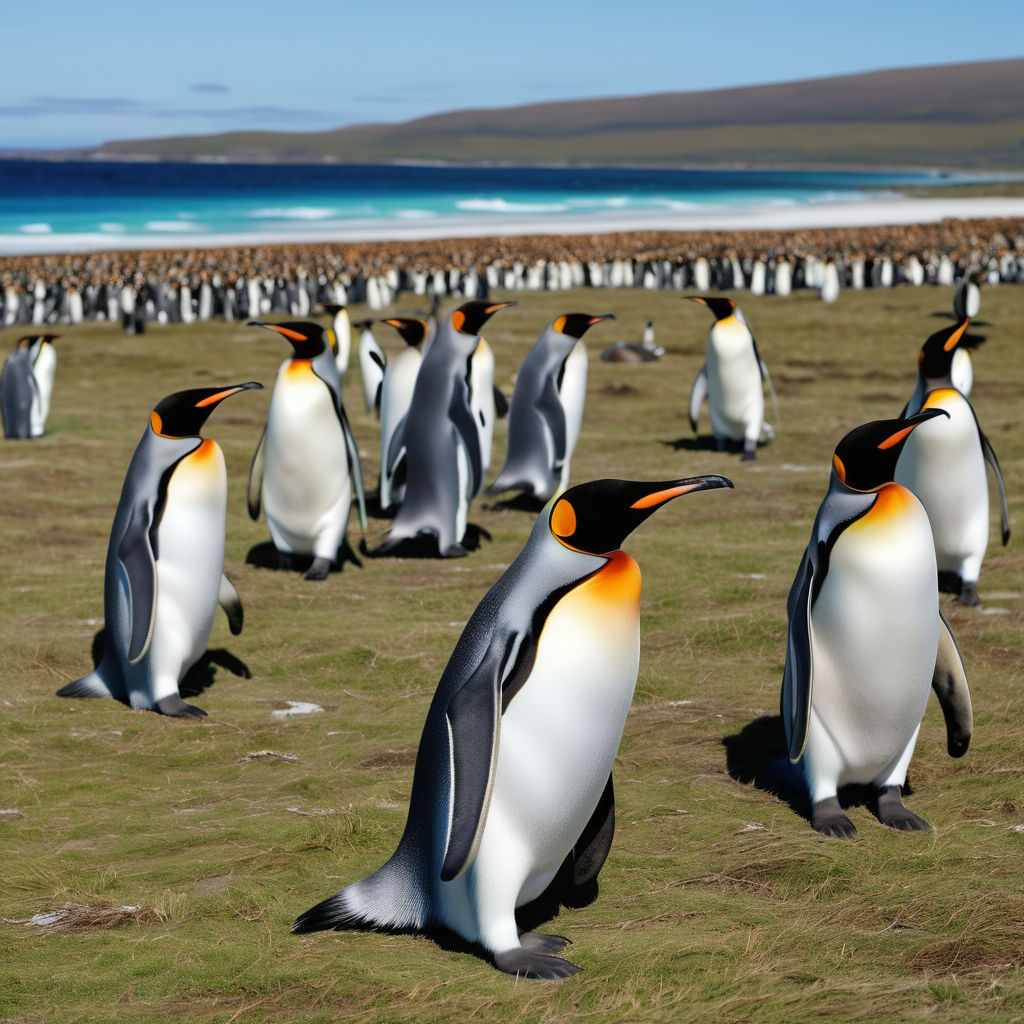Introduction to Falkland Islands: A Unique Cultural Heritage
Exploring the Cultural Richness of the Falkland Islands

Introduction to Falkland Islands
The Falkland Islands, a British Overseas Territory, is located in the South Atlantic Ocean, approximately 500 kilometers east of the southern coast of Argentina. The archipelago comprises two main islands, East Falkland and West Falkland, along with over 700 smaller islands. The capital, Stanley, is situated on East Falkland and serves as the administrative and economic center. With a population of around 3,400 people, the Falkland Islands boast a unique cultural heritage influenced by British and South Atlantic maritime traditions.
Cross-national and Cross-cultural Understanding
The people of the Falkland Islands have a distinctive perspective on cross-national and cross-cultural understanding, shaped by their remote location and historical ties to the United Kingdom. Islanders are generally open to engaging with other cultures, valuing both the preservation of their own traditions and the inclusion of new influences. Cultural exchanges are a significant aspect of Falkland Island society. The islands host various cultural festivals and events, such as the Falkland Islands Day, which celebrate local heritage and attract visitors from around the world. These events provide opportunities for cultural exchange, promoting mutual respect and understanding between locals and visitors. Educational programs also play a crucial role in fostering cross-cultural understanding. Falkland Island students often participate in exchange programs with the United Kingdom and other countries, broadening their horizons and enhancing their appreciation for different cultures. Additionally, the presence of expatriates working in various sectors on the islands contributes to a multicultural environment. International partnerships further enhance cross-cultural understanding. The Falkland Islands collaborate with various international organizations, including the Commonwealth and the United Nations, on initiatives ranging from environmental conservation to sustainable development. These partnerships facilitate knowledge exchange and help the Falkland Islands engage with the global community.
Interactions and Social Dynamics
Interactions between the people of the Falkland Islands and foreigners are typically characterized by warmth and hospitality. The small, close-knit community values personal connections and is generally eager to welcome visitors and newcomers. Social behaviors in the Falkland Islands emphasize respect, politeness, and community spirit. Visitors often find themselves warmly greeted and included in community activities. The island's culture places a high value on communal living and cooperation, which extends to interactions with outsiders. Communication styles in the Falkland Islands are usually informal yet respectful. English is the official language, which facilitates interactions with English-speaking visitors. However, the islanders also value their unique dialect and expressions, which reflect their cultural identity and heritage. Language plays a vital role in the social dynamics of the Falkland Islands. The widespread use of English allows residents to engage effectively with the outside world while preserving their unique cultural identity. This bilingual nature enhances communication and mutual understanding.
Views on Dating and Relationships
Dating and relationships in the Falkland Islands are influenced by traditional values and the small size of the community. Relationships with foreigners are generally viewed positively, provided they respect local customs and traditions. Attitudes towards dating and relationships with foreigners are open-minded, but they are also guided by cultural expectations. Islanders value family approval and community acceptance in relationships. Foreigners entering into relationships with locals are expected to understand and respect these cultural nuances. Cultural expectations and traditions play a significant role in shaping relationships. Respect for elders, family involvement in relationship decisions, and adherence to community norms are important aspects. Foreign partners are often welcomed into the extended family structure, provided they show respect for these traditions.
Marriage and Family
Marrying foreigners is relatively common in the Falkland Islands, and such marriages are generally accepted by the community. Legal considerations for marriage involve adhering to both Falkland Island and British laws, depending on the nationality of the foreign partner. Marriages must be registered with the local authorities, and there are specific residency requirements for foreign spouses. Socially, family life in the Falkland Islands is centered around strong familial bonds and communal living. Marriages between locals and foreigners are celebrated, and the community often supports these unions. Family approval is a significant aspect of marriage, and foreign spouses are expected to integrate into the Falkland Island way of life, participating in family and community activities. Common practices in cross-cultural marriages include blending traditions from both cultures. For example, couples might celebrate traditional Falkland Island weddings alongside modern practices. This integration of customs enriches family life and fosters mutual respect and understanding.